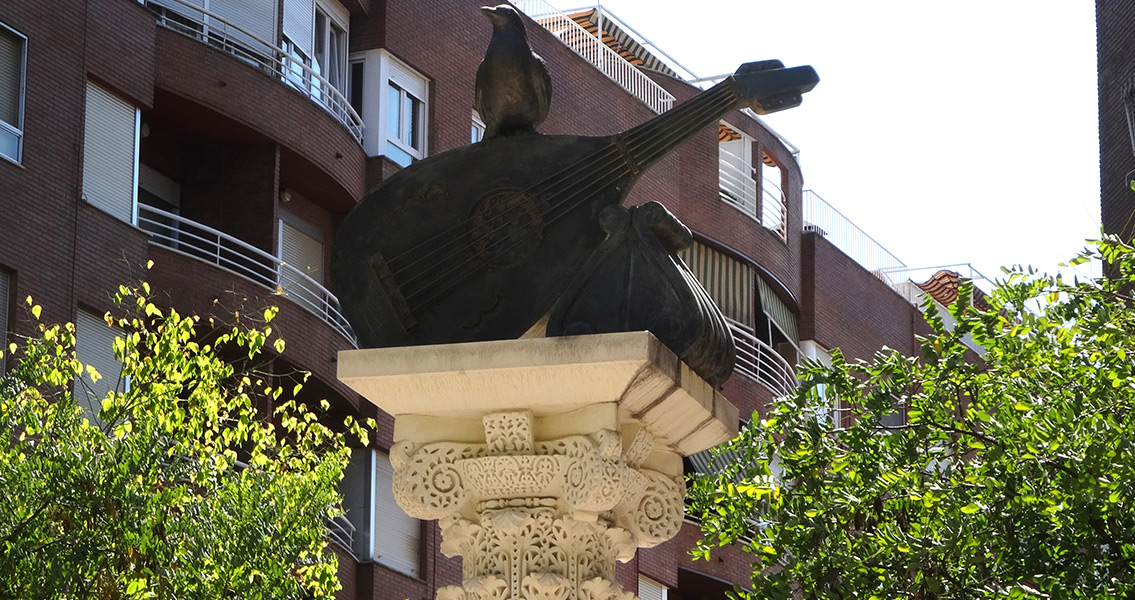<![CDATA[A massive part of our modern lifestyles can be attributed to one man who lived over a thousand years ago. From men having short hair and shaving to the order in which we eat a meal, the list of innovations that can be traced back to Abul-Hasan Alí Ibn Nafí, most often known by his nickname Ziryab, is remarkable; yet he is shrouded in obscurity, seldom mentioned in history books in the West. Ziryab first gained fame as a master musician, responsible for bringing the lute (Oud) to western Europe and revolutionising the potential of the instrument by adding an extra bass string and using an eagle's quill instead of wood for a plectrum. He also founded a hugely influential music school in Cordoba, Spain, helping translate Eastern ideas into western European music. His skill as a musician saw Ziryab rise to a prominent position in Muslim Spain, allowing him to become a respected arbiter of taste and trend setter. He introduced the set course meal to western Europe, a style of eating that hadn't been seen there since the reign of the Roman Empire. A soup course was to be followed by a fish course, then a meat course and finally a desert; a form the basics of which can still be seen today. Toiletries were brought over from the orient. Following Ziryab's example, the Spanish nobility started to invest in toothpaste, perfumes, even early forms of deodorant. In addition, he revolutionised grooming. Men started to shave, and take inspiration from Ziryab's smart, short hairstyles. Even something seemingly as simple as eating asparagus for dinner is an innovation that can be traced back to Ziryab. Details of Ziryab's early life are unclear, legend tangling with fact; primary sources with mythology. Abu Hasan Ali Ibn Nafi was born in Persia, in what is modern day Iran, circa 789 CE. Some accounts claim he was born into slavery, others that he was the son of a freed Ethipoian slave. His nickname: 'Ziryab', came later in life. It means blackbird, and was likely given in reference to his dark complexion and stunning singing voice. He entered the tutelage of Ishaq Al-Mawsili, the Caliph's court musician, and quickly showed an immense talent for music, some accounts claiming he even enraged his master with his superior ability. At some point he left Baghdad, traveling the Middle East and North Africa before eventually arriving in Spain, the farthest outpost of the Arabic Empire. Again, sources vary as to exactly why this happened. Was he fleeing the wrath of his master, or had he officially been sent to the region by the Caliph? The Arabic Empire was at its nadir in the eighth and ninth centuries, stretching from the Middle East through the Mediterranean. With it, elements of Islamic culture and civilisation also traveled, drastically changing the regions that fell under the control of the Empire. When Ziryab arrived there, Spain (then known as Al-Andalus) continued to be considered something of a backwater. Its culture was still heavily influenced by the Visigoths and Vandals, while Muslims remained a minority in the country. In 822 CE, Ziryab arrived in Cordoba. He quickly commenced work in the court of the leader of the emirate, who was desperate to bring the culture of the East to the Arabic Empire's "Wild West". Ziryab rose to fame, and this fame allowed him to become incredibly influential, affecting social customs, cuisine and the arts - bringing ideas from across the Arabic Empire to Europe; ideas that remain a fundamental part of many cultures today. Ziryab's innovations became popular fashion, and helped inspire a Golden Age in Spain that culminated in it becoming a Caliphate and vital centre of learning in the Arabic Empire and Europe. As Cordoba's prestige grew, Ziryab's ideas started to gain influence in France, Italy and elsewhere in Europe. Some historians go as far as to argue that this Spanish Golden Age, which for hundreds of years saw the region act as a vital cultural hub, planted the roots for the fourteenth century Renaissance. In Muslim nations around the world there are streets and monuments dedicated to Ziryab, yet in Europe he is barely acknowledged, a consequence of a tendency in the West to ignore the huge significance of Muslim Spain, and its greatest scholars.]]>
Ziryab: A Forgotten Innovator of Music, Gastronomy and Style
